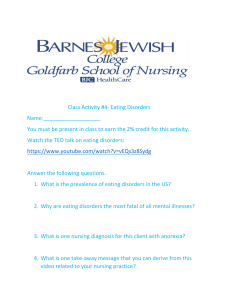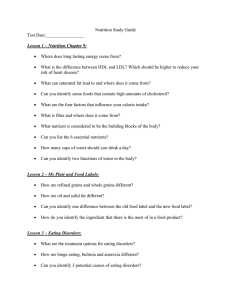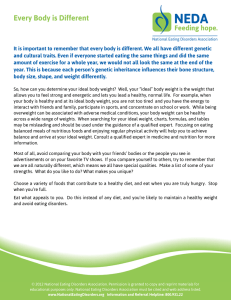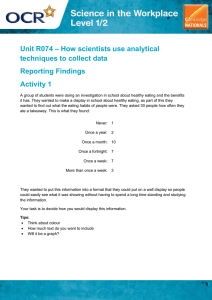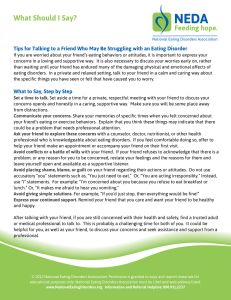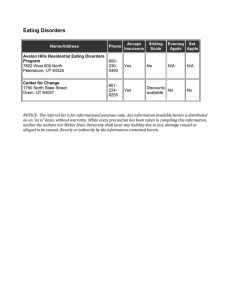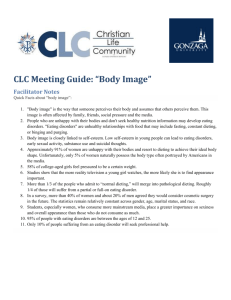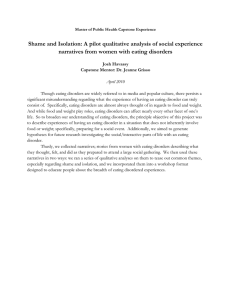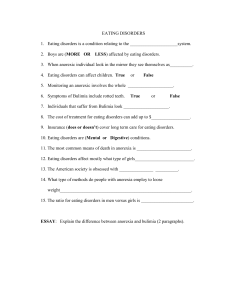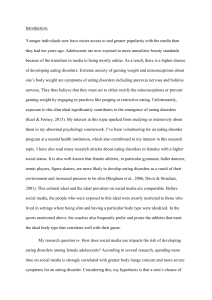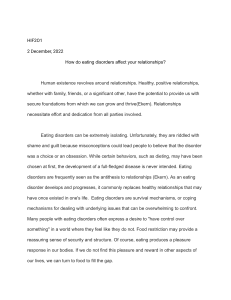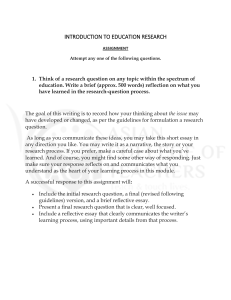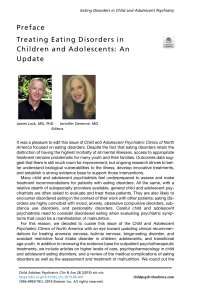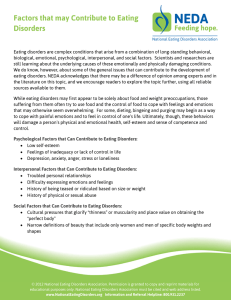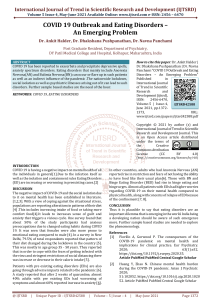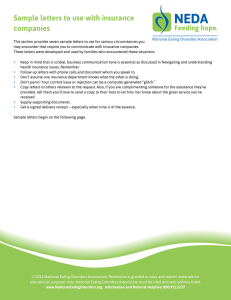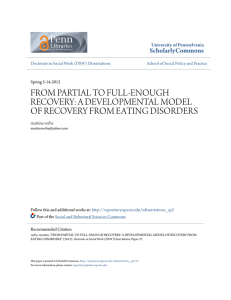7.NPA.3.2
advertisement
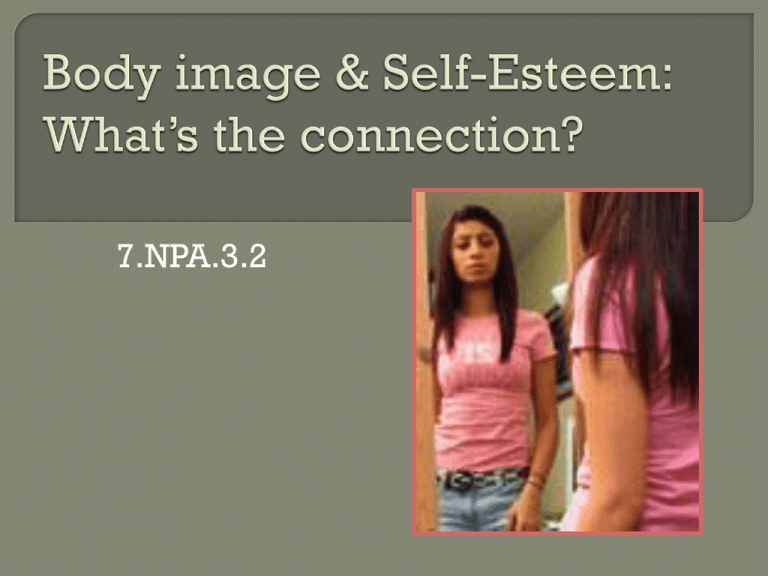
7.NPA.3.2 Define body image, negative and positive List factors that influence body image Explain the association between selfesteem and body image Explore ways to become advocates for realistic body image How you see yourself when you look in the mirror or when you picture yourself in your mind. What you believe about your own appearance (including your memories, assumptions, and generalizations). How you feel about your body, including your height, shape, and weight. How you sense and control your body as you move. How you feel in your body, not just about your body. Source: National Eating Disorders Association www.NationalEatingDisorders.org A distorted perception of your shape-you perceive parts of your body unlike they really are. You are convinced that only other people are attractive and that your body size or shape is a sign of personal failure. You feel ashamed, self-conscious, and anxious about your body. You feel uncomfortable and awkward in your body. Source: National Eating Disorders Association www.NationalEatingDisorders.org A clear, true perception of your shape--you see the various parts of your body as they really are. You celebrate and appreciate your natural body shape and you understand that a person`s physical appearance says very little about their character and value as a person. You feel proud and accepting of your unique body and refuse to spend an unreasonable amount of time worrying about food, weight, and calories. You feel comfortable and confident in your body. Source: National Eating Disorders Association www.NationalEatingDisorders.org Parents Peers Role Models Media By the way, if Barbie were life size: • She would stand 7 ft 2 inches and have a neck twice the length of humans. • Her measurements would be: 39-23-33. • She would have to walk on all fours in order to move. Self esteem: how you perceive yourself; what you consider your self-worth How are the two related? • Our culture often tells us our appearance is our most important quality. • Media often depicts unachievable standards of attractiveness for males and females. Sure you can! The first thing to do is recognize that your body is your own, no matter what shape, size, or color it comes in. Next, identify which aspects of your appearance you can realistically change and which you can’t. Everyone has things about themselves that they can't change and need to accept — like their height, or their shoe size. If there are things about yourself that you want to change and can (such as how fit you are), do this by making goals for yourself. When you hear negative comments coming from within yourself, tell yourself to stop. Try building your selfesteem by giving yourself three compliments every day. Source: KidsHealth.org What types of products use physical qualities within their advertising? (words like beautiful, thin, strong or images that emphasize unrealistic body shapes and sizes) Just about all of them! For example: •Did anyone write down thin or powerful? •Why do you think these words were used to sell this product? A letter responding to the Mac ad from the National Eating Disorder Association When you see a Bad Ad, you can do something about it! Bring your friends’ attention to the ad and find out what they think. Don’t buy the product. Write a letter to the manufacturer. What is an advocate? Someone who is supportive of others When giving compliments, focus on intrinsic (internal) qualities, rather than extrinsic (external) qualities. Don’t participate in bullying; stand up for the person or both walk away. Show respect for the differences in others.
